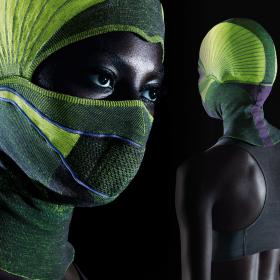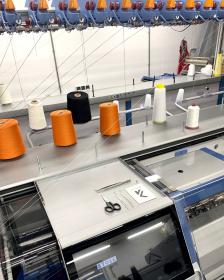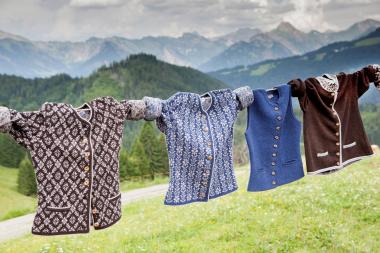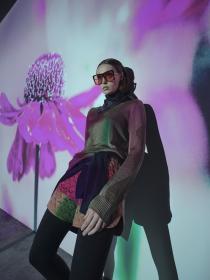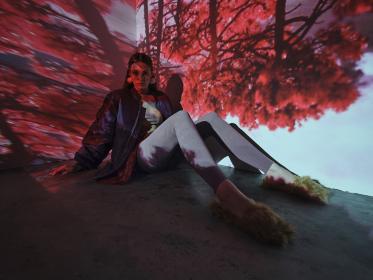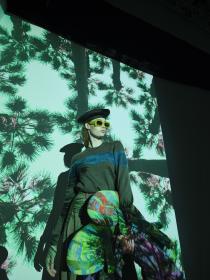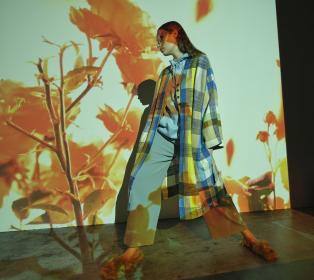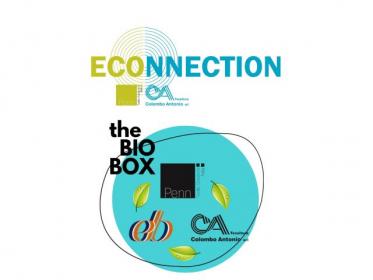STOLL: Flat knitted balaclava in Design Museum in New York
The exhibition “Acquired! Shaping the National Design Collection” at Cooper Hewitt, Smithsonian Design Museum, which opened on 16 March, features a STOLL work that has been part of the museum’s permanent collection since 2017.
Visitors can expect more than 150 works that have been compiled from the museum’s collection and new acquisitions since 2017. The selection, which includes works by design pioneers of the recent past, also includes a highly functional balaclava from STOLL.
Blend of design and functionality.
The flat knitted balaclava from STOLL is part of an exhibition area that visualises the defining themes of our time. Alongside a hijab, it stands for considering inclusivity in design. The balaclava offers protection from extreme cold, is stylish and is the result of a combination of creativity and technology.
The balaclava integrates an NFC chip for near-field communication, a heater to warm breathable air, a positive and negative power connector and reflective strips for passive visibility, all knitted directly into the fabric. STOLL’s state-of-the-art flat knitting technology is the basis for straightforward integration. Circuits and conductive yarns can also be incorporated in a fully automated process exactly where they are needed.
Other performance features do not require additional components. A knitted-to-shape 3D design – made possible by the goring technique – offers a perfect fit by following anatomy and eliminating the need for complex tailoring.
KARL MAYER Group


